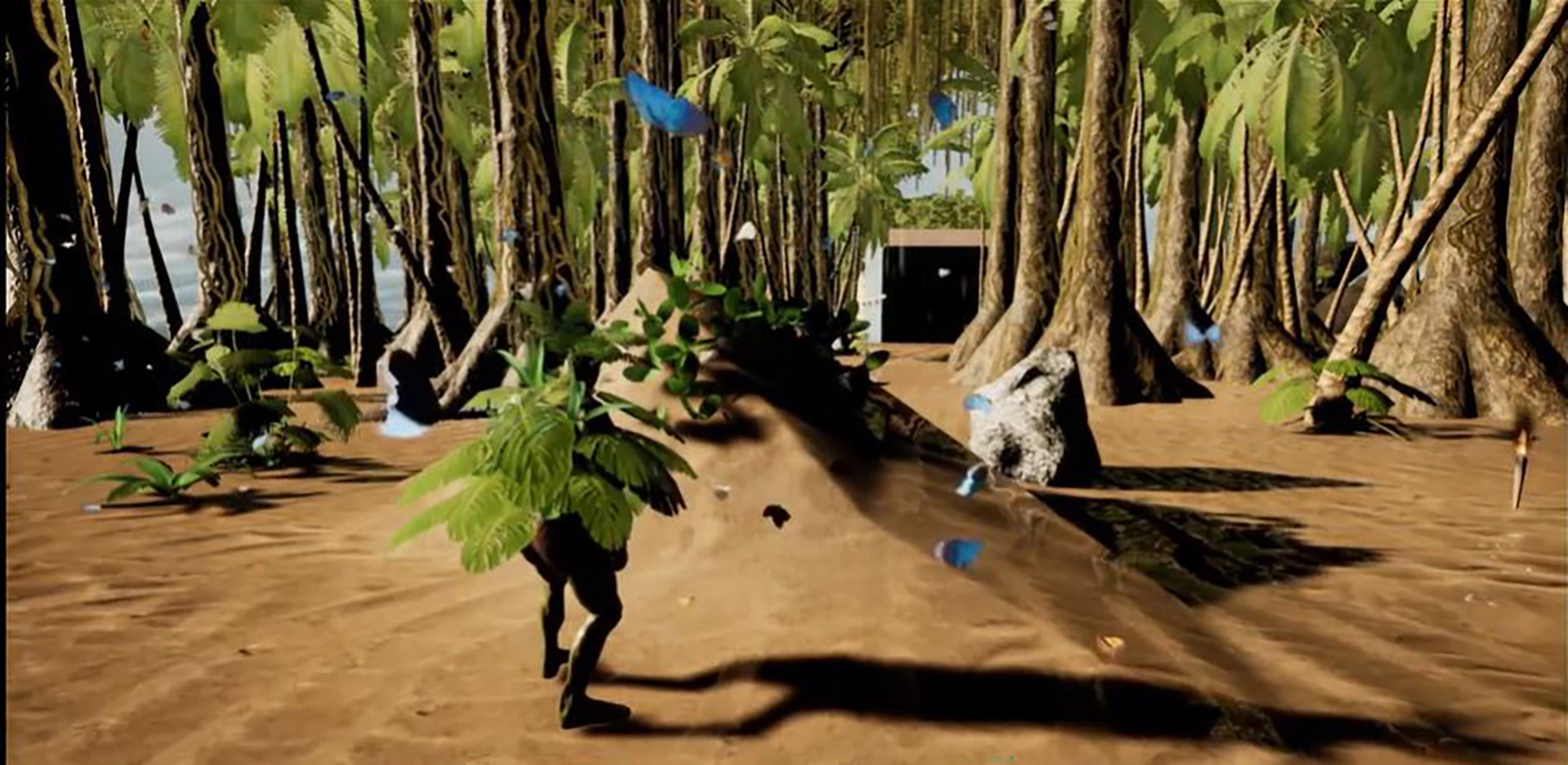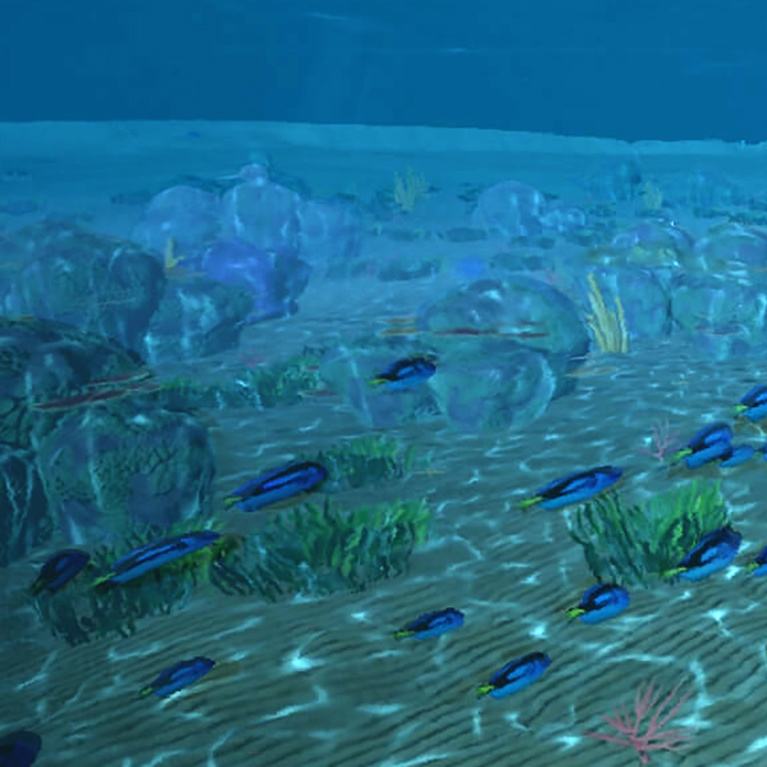- Posted on 15 Aug 2025
- 5 minutes read
Dr Rhett Loban has won a 2025 Young Tall Poppy Science Award for designing Indigenous culture into digital games and immersive experiences.
Slip on a virtual reality headset and instantly step into the waters of the Torres Strait teaming with fish, sharks and rays. Look up into the night sky to see the constellations of Tagai (the warrior) and Baidam (the shark). On land, you have duties to collect items for the Tombstone Opening ceremony which is an integral part of Torres Strait Islander culture.
This is the experience in Torres Strait Virtual Reality, a reconstruction of the Torres Strait Islands designed to help players explore this unique cultural and natural environment.
The game’s creator, Dr Rhett Loban, is a proud Torres Strait Islander man and expert in game-based learning, virtual reality and Indigenous education.
He is now a 2025 Young Tall Poppy, an annual award from the Australian Institute of Policy and Science that recognises the significant achievements of publicly engaged scientists.
“I created the game because I felt Torres Strait Islander culture was not widely known or depicted in interactive media. I wanted to help young people and students engage with Torres Strait Islander culture,” Dr Loban said.

Game worlds typically involve different stories, locations and characters. They can also depict different cultures and cultural knowledge systems.
Dr Rhett Loban
Director of Indigenous Education, Faculty of Engineering and IT
“However, there isn't a lot of research on how to go about embedding culture or knowledge systems in game worlds, especially with regards to Indigenous gaming and virtual reality in Australia.”
Dr Loban, who is Director of Indigenous Education in the UTS Faculty of Engineering and IT, is bridging this gap with a unique approach to research, learning and culture.
“I’ve always had a strong interest in gaming. My PhD explored learning through games with a focus on “modding” or modifying, where you take an existing game and alter it to create a new version of the game or new game content,” he said.
“As a side project to my PhD research, I was also working with Unreal Engine, a platform that crafts game worlds, and building the world that became Torres Strait Virtual Reality.”
He has taken these threads, and the philosophy he put into practice, and written them into a book, Embedding Culture into Video Games and Game Design: The Palm, the Dogai and the Tombstone.

“The game design process itself is a great form of learning. In building something, you’re learning, you’re engaging with stories, you’re creating these environments and, if you are working with people, you’re forming relationships,” Dr Loban said.
“A lot of what I do is designing with community to create a process for learning while helping build relationships. We work together to create knowledge and digital outputs.”
For Dr Loban, this has meant working with communities through his involvement with STEM school and community outreach programs such as the Indigenous Science Experience @Redfern. He was also an ambassador for the NSW Department of Education to help promote the new NSW computing syllabuses.
An example of this pedagogy is one of his current projects working with international partners to teach Mandarin language to students in Malaysia using immersive media of culturally important sites along with design processes.
Students created their own 360-degree tour environments centred around cultural sites, all while practicing their new language skills.
“Students are learning language, but they also deepen their understanding of the culture through the creation process. This cultural knowledge provides a backing to understanding the language,” he said.
“This can lead to change where students can have more positive views of the community they’re engaging with and learning about, while reflecting on their own cultural identity and biases.”
